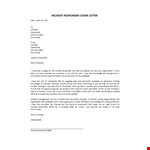Discover the various characteristics of an informational report and gain insights into important aspects such as GDPR compliance, information security, information technology, data security, incident reporting, and more. Understanding these key elements is essential for creating effective informational reports that meet industry standards and ensure the protection of valuable information.
When it comes to GDPR characteristics of an informational report, it is crucial to ensure that the report follows the guidelines set forth by the General Data Protection Regulation. This includes proper handling and protecting of personal data, obtaining necessary consent, and implementing appropriate security measures.
Information security characteristics are another essential aspect to consider in an informational report. This involves securing sensitive information, preventing unauthorized access, and implementing encryption, firewalls, and other security measures.
Information technology characteristics focus on the technology infrastructure used in generating, storing, and transmitting information. This includes considerations such as data management systems, network architecture, and software tools.
Data security characteristics play a vital role in protecting data from unauthorized access, alteration, or destruction. Implementing strong data encryption, access control measures, and regular data backups are essential for maintaining data integrity.
Lastly, incident reporting characteristics are important for documenting and addressing any security incidents or breaches that may occur. Effective incident reporting includes clear procedures, timely response, and proper documentation to mitigate potential risks.


